|
Research and Development |
The Building Research Institute (BRI) has been conducting various research and
development from the fair and neutral perspective of a
public-sector research institute on the "umpire's side".
The results of research and development are
reflected in forming governmental policies and/or drawing up national technical standards, which
are utilized for technology development, design and
construction in private sectors as the "players".
Those results are contributing to the improvement of
housing, building and urban communities in Japan. |
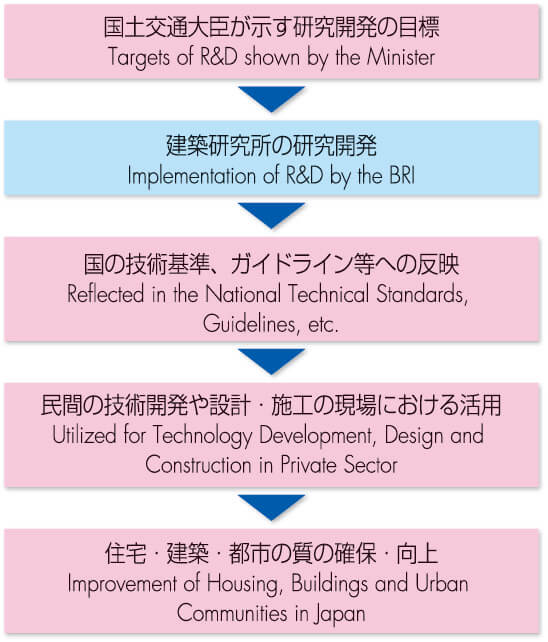
|
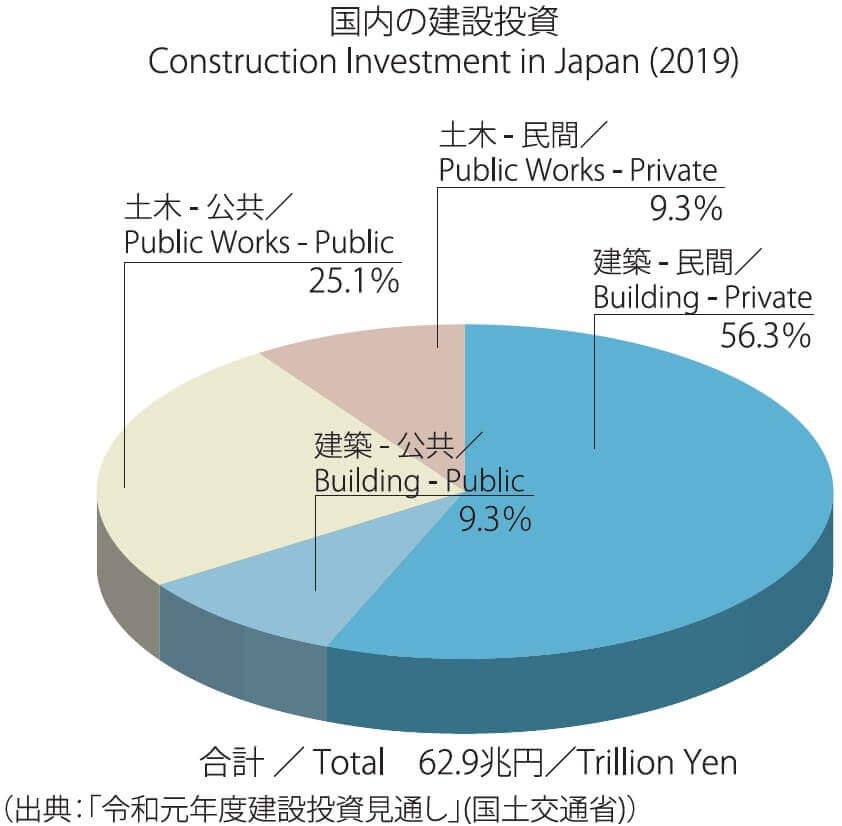 |
|
|
BRI has the following research departments to conduct research and development efficiently and flexibly.
For more information, please visit here. |
| Disaster Investigation |
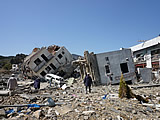
|
BRI has sent staff members to disaster-affected regions in Japan and overseas to conduct surveys on the damage to buildings and residential lands caused by the earthquake, tsunami, tornado, fire, etc. The research reports on those disaster investigations are of assistance in establishing countermeasures against damages. |
For more information, please visit here. |
|
| Technical Evaluation and Dissemination |
Responding to the request from the Ministry of Land, Infrastructure, Transport and Tourism (MLIT), BRI has been evaluating proposals from private sectors for "The Leading Projects for Long-term Quality Housing" and "The Leading Projects for Promoting CO2 reduction in Hosing and Building" since fiscal year 2008.
BRI has been making public the results of the evaluation and knowledge obtained from the evaluation process through symposiums, publications, etc.
|
| Strong Motion Observation |
BRI is conducting strong motion observation for building structures with more than seventy strong motion stations deploying in major cities throughout Japan.
For more information, please visit here.
|
| International Training |
BRI provides the training program in seismology, earthquake engineering and tsunami disaster mitigation in the International Institute of Seismology and Earthquake Engineering. The training program consists of 4 courses: (1) One-year training course in seismology, earthquake engineering and tsunami disaster mitigation, (2) Seminar course such as the Latin American Earthquake Engineering course, (3) Global Seismological Observation Course and (4) Individual course.
|
| Other International Cooperation |
BRI has been conducting a lot of international cooperative activities such as international collaborative research projects, international conferences and technology transfers to the developing countries as well as the International Training in Seismology and Earthquake Engineering.
BRI's International Institute of Seismology
and Earthquake Engineering (IISEE) is promoting
an international platform for reducing
earthquake disasters in developing countries
with MLIT and UNESCO from 2007 as the Center
of Excellence.
BRI has been dispatching staff members not
only as JICA experts for technology transfers to
developing countries in earthquake engineering,
but also as representatives of Japan to
international meetings of CIB, RILEM (International
Union of Laboratories and Experts in Construction
Materials, Systems and Structures) as well as ISO
(International Organization for Standardization)
in building fields.
For more information, please visit here.
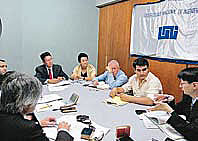
Meeting on international
joint survey |
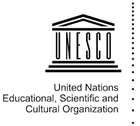
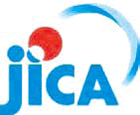
 |
|